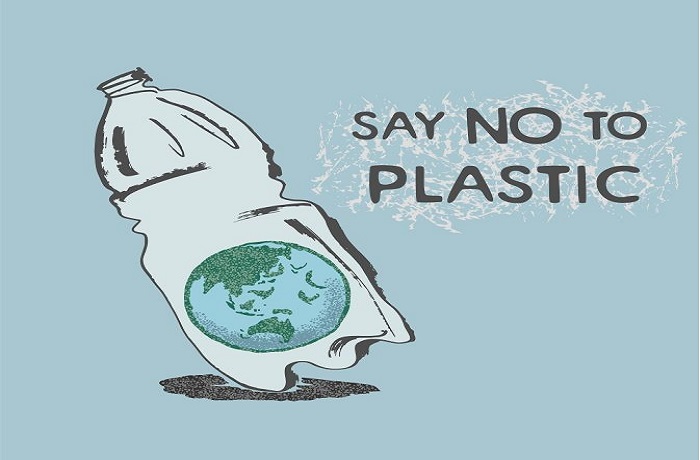
The average person needs to consume at least 8 cups of water per day. And more than half of all respondents to a survey by the International Bottled Water Association indicated they keep a bottle of water by their desk or in their car for daily consumption. Given the prevalence of plastic water bottles, it’s understandable why so many people have one as part of their daily routine. After all, they’re convenient and portable. But in addition to being less hygienic than other options (due to the potential for bacterial growth), plastic water bottles also present some serious risks — for your health and the environment.
If plastic water bottled bacterial growth is not enough to raise concern, below are some more reasons why you should consider ditching plastic water bottles for reusable alternatives and home water delivery services.
Are Plastic Water Bottles Worth It?
In a previous article, we discussed what plastic water bottle companies don’t tell you and with that, we laid out that plastic bottles are not worth it. Plastic water bottles are really only useful if you’re using them as intended — to store water for daily consumption. But aside from being the more expensive choice (aside from opting for reusable glass or steel bottles), you’re contributing to millions of plastics not being recycled with health risks to boot.
6 Reasons Why You Should Ditch Plastic Water Bottles
If you have the option to go for other water sources aside from plastic water bottles, this is your sign to do so. See why plastic water bottles do more harm to everyone.
1. Plastic Water Bottles Are Expensive & Wasteful
The first reason to ditch plastic water bottles is that the process of creating them is incredibly harmful to the environment. In 2017, the Guardian reported that it takes 42 billion gallons of water to produce the 100 billion plastic bottles used annually in the United States
In addition, virtually all plastic bottled water is manufactured from fossil fuels, which means that it takes a tremendous amount of wasted energy to produce. The Pacific Institute estimates that the production of bottled water uses 17 million barrels of oil each year — enough to fuel 1.3 million cars.
2. You’re Probably Drinking More Plastic Than Water
Plastic bottles made from polyethylene terephthalate (PET) can leach plastic chemicals into the water. Aside from that, even when plastic manufacturers claim that they use BPA-free bottles, chemicals that act as endocrine disruptors can also get into the water and into the body. These have been linked to various health problems including cancer, fertility issues, and more.
The simplest way to cut down on your exposure is to avoid drinking from plastic bottles altogether.
3. Plastic Water Bottles Are Hardly Recycled
Most plastic water bottles are marketed as being recyclable, but a report from the Last Beach Cleanup and Beyond Plastics shows that only 5-6% of plastics like bottles and cups were recycled in 2021.
If you’re consuming just one bottle of water every day, that’s almost 35,000 plastic bottles being thrown away over the course of a lifetime, with little to no bottles being recycled.
4. Bottled Water is Often No Cleaner Than Tap Water
To be clear, all water must be regularly tested and monitored to ensure that it’s safe to drink. But the fact is tap water has regular and more thorough safety testing and monitoring to ensure that water is safe to drink, unlike bottled water which can only be required once every six months. This means bottled water is not purer than tap water.
5. Ditching Plastic Will Help Protect the Environment
Plastic water bottles take hundreds, even thousands, of years to biodegrade, so many end up discarded in landfills or, worse, floating in our oceans. This poses a threat to marine life and the natural ecosystems they sustain. A recent study found that more than 17 million pieces of plastic were found in the bellies of marine mammals. In addition, plastic water bottles leach harmful chemicals that can be toxic for marine inhabitants. How do we help reduce plastic? By opting for reusable water containers instead of single-use plastic water bottles.
6. Reusable Glass Water Bottles Are Safer & Nicer
Having glass water containers at home or office ensures that no chemicals will leach into the water with bottles, making it a safer choice. Glass bottles also look better and can be used for a long time (no bottle expiration date). Aside from being a conversation starter, you’ll also save extra costs from buying single-use plastic bottles.
In addition to being safer, reusable glass water bottles are also better for the environment. Plastic water bottles end up in landfills when they’re not used, taking up space and adding to the strain on our natural resources. Glass water bottles can be recycled over and over again, which helps keep them out of the environment while also helping reduce waste.
Which Plastic Water Bottle Alternative Should You Choose?
You can reduce your plastic consumption by investing in reusable bottles. These are offered in many different shapes, sizes, and materials, including stainless steel bottles and glass bottles. Whichever bottle you choose, make sure to clean it regularly to help prevent the growth of bacteria. Once you make the switch to reusable bottles, you’ll not only reduce your plastic consumption, but you’ll also save money. Because reusable bottles can be used over and over again, they’re likely to save you money in the long run.
You can also opt for a home water delivery service with a trusted water source like Lipsey Water. Lipsey only offers water that is pure, fresh, and free of harmful chemicals, sourced from a deep rock spring in the mountains of North Carolina, and delivered in pristine glass bottles. With a community-trusted source, you and your family are sure to drink safe and clean water.
Contact us today to learn more about home water delivery options.
